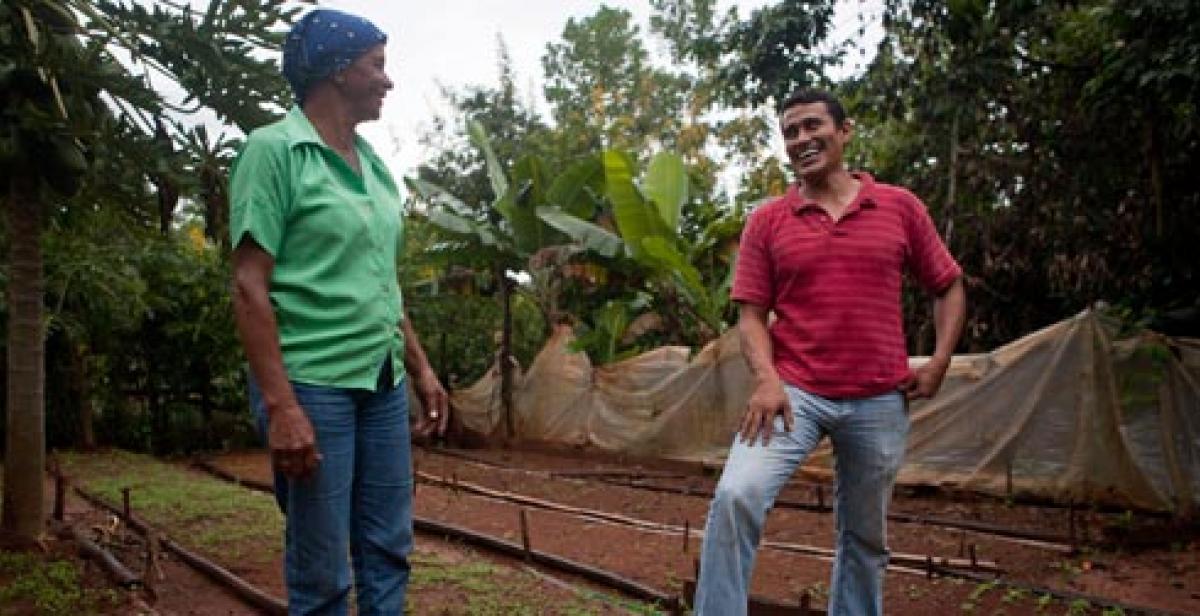Latest updates from Gabriel and Bernardo: bad weather delays exchange visit between farmers groups from Ouanaminthe and Hinche; installing family gardens, constructing roofs for orchards, and creating worm beds for organic compost; and promoting coffee cultivation through farmers' associations
DW Gabriel: "Unfortunately the weather conditions and political instability have hampered these efforts"
The group (staff and some beneficiaries) of Ouanaminthe made every effort to reach Hinche on February 18th to participate in the exchange visit between the two areas. Unfortunately the weather conditions and political instability have hampered these efforts during the travel.
When we reached Dondon the bus could not cross the river due to the increased water level and we needed to take another road which is considerably longer, and arriving to Deschapelles we couldn't continue due to a strike and barricades on the road.
Time was passing and as it was becoming late, the group was afraid to change the route again, and take the road in the direction of Port-au-Prince in order to get to Mirbalais and from there to Hinche. So the group asked to return to Ouanaminthe.
We are really sorry we were not able to complete the trip after all the expenses and preparations that were made in order to make this activity possible. Hopefully we can reschedule this activity for next month.
DW Bernardo: "The organisations are very excited to get started with the coffee production"
Last week we did some follow-up visits for programming in targeted communities of the Green Libon Project covering the River Libon area (this project is co-funded by GIZ) and Promarena (co-funded by Ministry of Environment). This will enable us to carry out the work and fulfil our commitments for this year.
As funds from the Ministry of Environment are still pending, we will focus on the Green Libon Project continuing with the installation of small family gardens, the construction of roofs (covered with plastic sheets) for the orchards managed by the farmers' associations, and the creation of worm beds for vermicompost for organic fertilisation of crops.
We held coordination meetings with the GIZ and IDIAF, discussing activities for the transfer of appropriate technologies for cultivation and management of coffee. We proposed to carry out theoretical and practical training sessions with beneficiaries.
Given that the dynamics of work with beneficiaries is based on associative work and grassroots organisations, we want to maintain the same dynamic in the work on coffee. So we are focusing on recovery and maintenance of coffee crops that can be managed through farmers' associations of Valle Nuevo, Vara de Vaca, Trinitaria and Mariano cesteros (all are rural communities of the municipality of Restauración).
It is expected that by the end of February, we will have completed outstanding activities of small gardens within the Green Libon Project and we can start the new agreements concerning the coffee cultivation. The organisations associated to UNAPROBOSQUE are very excited to get started with the coffee production as it will generate important income for the associations and opportunities to get contracts signed with coffee companies.
Photo: Amparo Jimenéz with DW Bernardo in her food garden in El Carrizal, Dominican Republic (photo © Fran Afonso/Progressio)
 Read more stories from our food security project
Read more stories from our food security project
Return to Food for a better future home page



